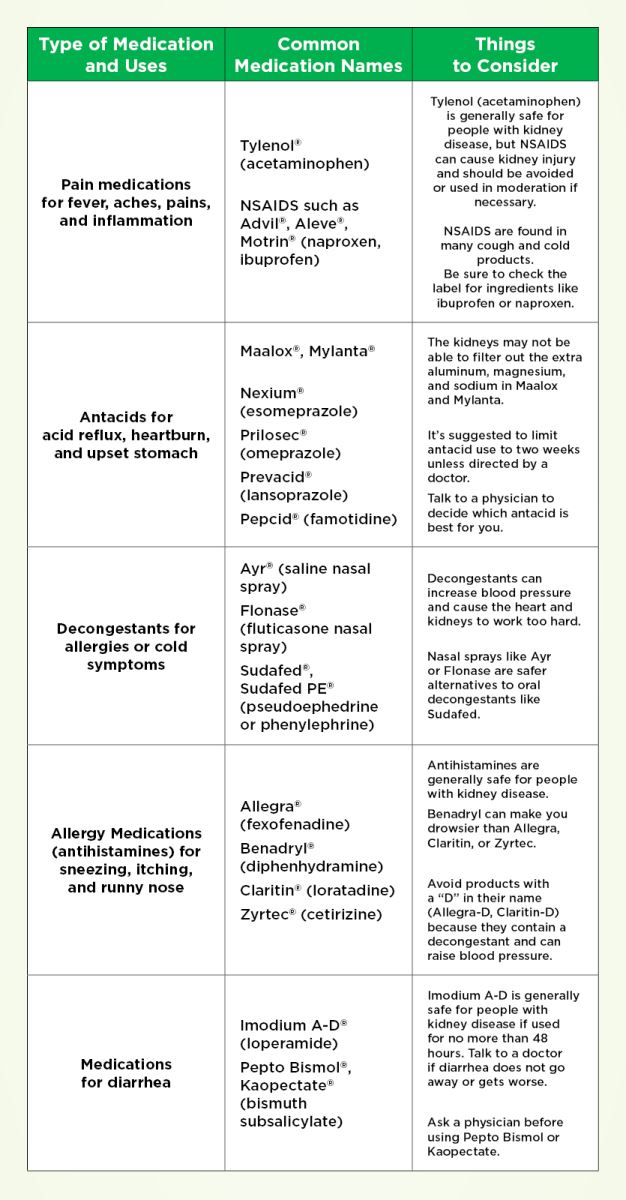
This post was written by Kendra Yarian, PharmD, PGY1 Pharmacy Resident, Parkview Health.
Reaching for a bottle of Tylenol ® for a slight headache or a blast of nasal spray to clear the sinuses is often second nature, but consulting a pharmacist may not be top of mind when scanning over the tiny labels to check the correct dosage. Over-the-counter (OTC) medications are a safe and convenient option when seeking immediate relief for minor health problems. However, excessive or prolonged use of certain OTC medications can have harmful effects on the kidneys, especially for individuals who are at risk or have been diagnosed with chronic kidney disease.
The important role of the kidneys
The kidneys are responsible for regulating blood pressure, activating vitamin D for healthy bones, directing the production of red blood cells and regulating fluid levels. According to the National Institute of Diabetes and Digestive and Kidney Diseases (NIDDK), the kidneys filter all the blood in the body up to 25 times a day removing waste and excess water to make urine. Without this filtering process, toxins harmful to the kidneys and other organs would accumulate in the body, leading to chronic kidney disease (CKD).
One in three adults is at risk for CKD, also known as the “silent epidemic,” because it often shows no signs until it reaches more advanced stages. Because this disease has very few symptoms, one of the best ways to prevent or slow the progression of CKD is early detection through regular screenings. Speak with a primary care provider to learn more about your risk for kidney disease.
Over-the-counter medications and the kidneys
For those living with CKD, selecting the appropriate medications is critical. Navigating the pharmacy aisle can feel overwhelming with the seemingly endless number of drugs and supplements to choose from. Pharmacists have extensive knowledge of how medications impact kidney function and can provide guidance on selecting safe alternatives for common ailments that minimize further damage to the kidneys and will not interfere with prescription medications that may be used to treat CKD.
The table below breaks down the common types and names of over-the-counter drugs and how they may interact with the kidneys.

Maintaining kidney health is essential for everyone, regardless of their risk of developing CKD. While this chart can be a great resource it does not replace the personalized advice of a person’s care team or pharmacist. Whether you have questions about the safety of a drug or just want to better understand how your medications interact with your kidneys, you can reach out to your pharmacist for help.



